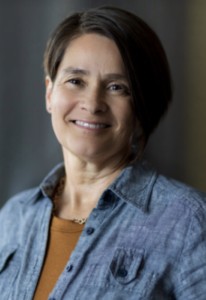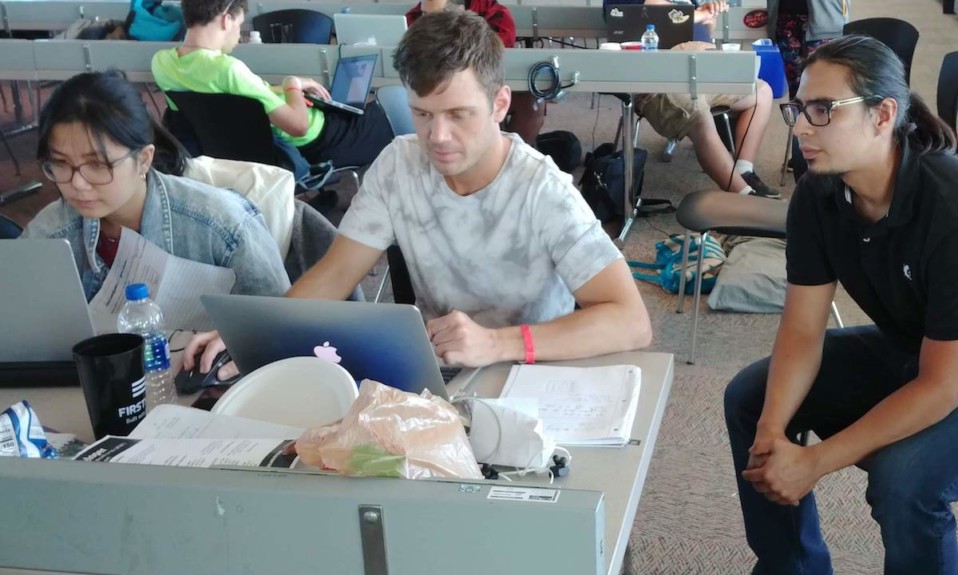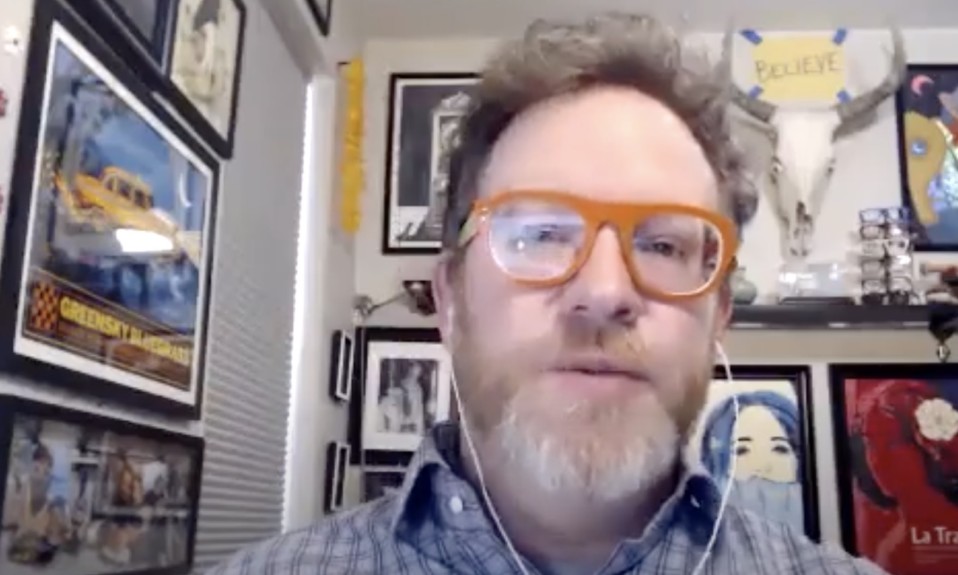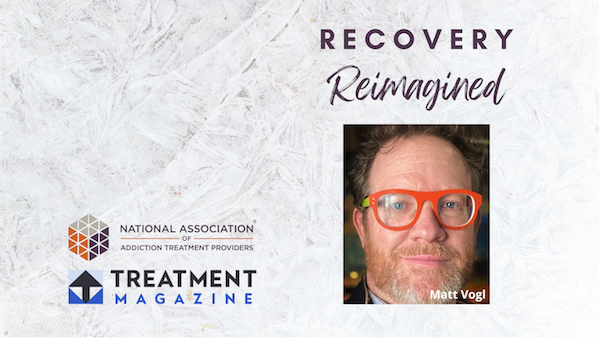Students from the school used good old American know-how to develop the potentially life-saving resource literally overnight
By Jason Langendorf
The dirty secret about opioid overdose deaths is that a significant number of them occur with another person close by—maybe a bystander who is frozen by fear or uncertainty about what comes next.
A smartphone application built by a group of students and faculty from Ivy Tech Community College in Indiana offers a potential solution: crowdsourced, community-led first-responder teams.
The idea sprung from the mind of Kirk Hoey (above, center), a student competing in a 2019 hackathon with a team of Ivy Tech peers from satellite campuses around the state. The group challenge: develop an app—literally overnight—to assist first responders in the field. Hoey, who is in recovery, has had multiple experiences with opioid overdoses and understands the complexities involved in those crucial moments when a life hangs in the balance. Within 24 hours, he and the Ivy Tech team had created the framework for an app that, with the push of a button, would call on volunteer first responders to quickly deliver the overdose reversal drug Narcan, or naloxone, to the site of the emergency.
I heard about this project, and I saw the community response to the project. I approached the students and the professor about trying to see if we could actually make this app a real product—continue with it.”
—Joanne Cogdell, Naxos Neighbors
Not only did the Ivy Tech crew win multiple awards for its work, including first place for Best Opioid Crisis App in the AT&T FirstNet Hackathon, but it also caught the eye of Joanne Cogdell, a nonprofit management student and IT professional at Ivy Tech South Bend.
“I heard about this project, and I saw the community response to the project,” Cogdell says. “I approached the students and the professor about trying to see if we could actually make this app a real product—continue with it.”
The Formation of Naxos Neighbors
From there, Cogdell helped establish Naxos Neighbors, an LLC built around bringing the Ivy Tech team’s opioid overdose app to life and making “compassionate connections in crisis.” The latter mission isn’t just clever marketing-speak. Cogdell says it is critical to the success of the app.
“Some of our predecessors have just been an app that’s available anywhere in the country, with no connection to the community,” Cogdell says. “And that is a difficult model to sustain, because the number one thing is, you’ve got to have the trust from those who are using opioids. They have to trust that this app is for them and it’s not going to be used in any way to cause them harm.”
A 2018 report released by the Centers for Disease Control and Prevention (CDC) tracked opioid overdose deaths across 11 states over a 12-month period and found that 44% involved a bystander who had the ability to intervene. But if that bystander has no access to naloxone or isn’t in a state to administer the reversal drug, the only choice typically is to dial 911. With increasing frequency, those calls have led to punishment, forcing the bystander to make difficult choices and creating another barrier for an overdose victim to receive life-saving treatment.
Cogdell, the CEO of Naxos Neighbors, returns to the experiences of Hoey, the company’s chief marketing officer. She says it was Hoey’s perspective on multiple sides of overdose scenarios that drove the design and user experience of the app.

“He has overdosed with a bystander present who did not call 911,” Cogdell says of Hoey. “He has been a bystander of an overdose and did not call 911. And he lost a good friend to overdose with a bystander present—who actually pushed the person out of the car and did not call 911. His stories were very compelling to us. There is a problem. There’s a huge problem.”
What’s Next for the Overdose App?
Naxos Neighbors has put the overdose app through beta testing and, with a list of 87 interested participants ready to download, is preparing to pilot it in the South Bend area. But the company has what Cogdell calls a “chicken-and-egg problem.” Potential investors have expressed interest, but Naxos Neighbors currently has no funding.
“We’ve talked to people who’ve said, ‘Prove it works, and then we’ll come back and let’s talk,’” Cogdell says. “But not anybody that wants to help fund the pilot itself.”
Cogdell says that once the pilot proves the app is viable, it can be both scaled up (to areas beyond South Bend) and used for other emergency-related purposes.
“We see this model being something that could be applied to other crises as well,” she says. “Because of where we started, this is really important to us right now.”













